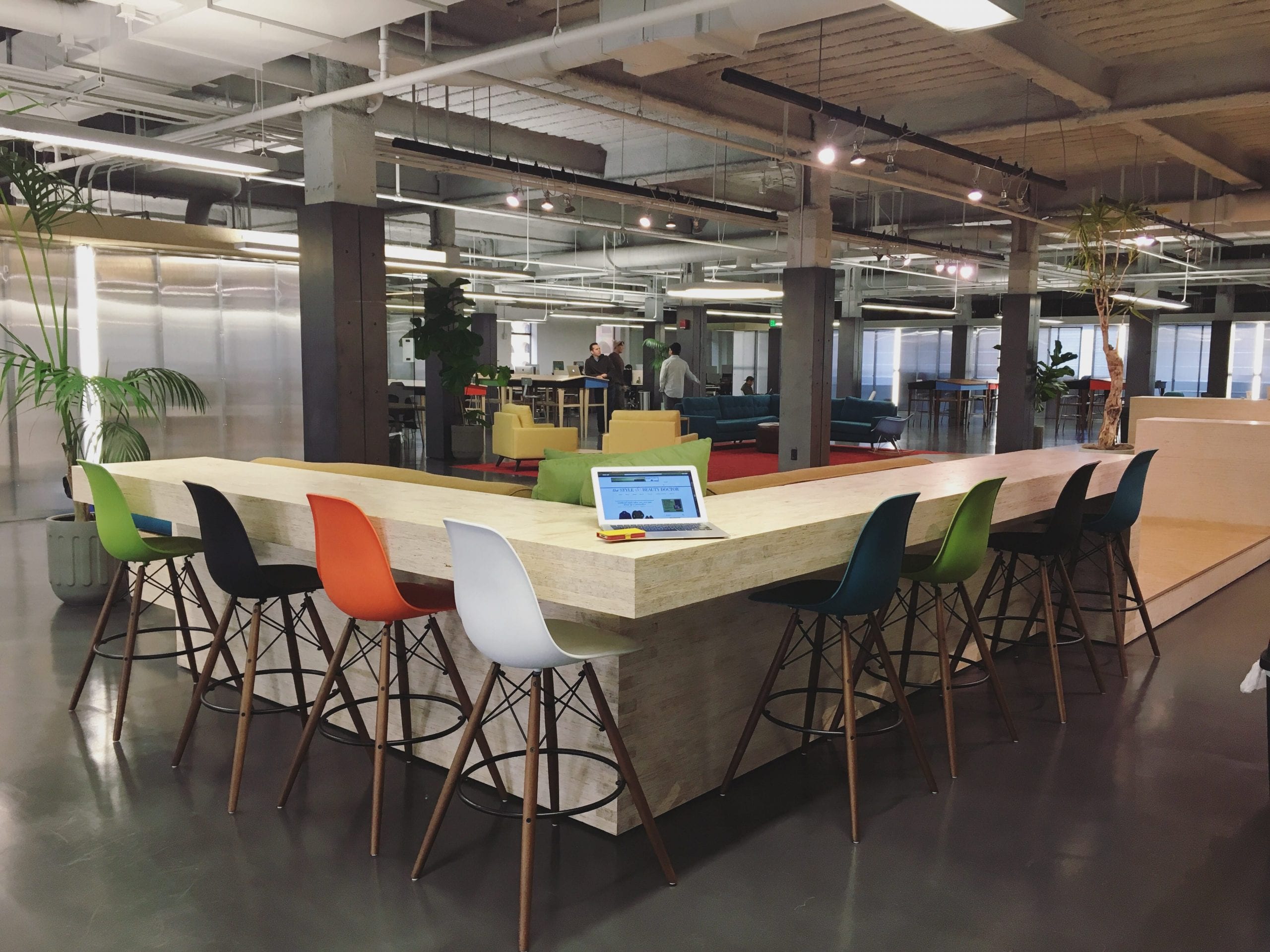
The Department co-working space was designed with entrepreneurs, nonprofits, investors and creatives in mind, featuring several conference rooms and an abundance of different work stations. (Photo: Brandi Porter)
When Kyle Fisher moved here from San Francisco in June of 2017, Downtown Phoenix took him by surprise.
“Phoenix has a draw that I didn’t anticipate,” he said. “I’ve been pleasantly surprised this entire time, and I’m excited to explore it more.”
Fisher works at the tech startup
Fin, a new personal assistant app that combines human and artificial intelligence to help solve life’s everyday problems. It can function on voice commands (similar to Siri or Alexa) to schedule meetings, pay bills, search restaurants, or even do complex tasks like create a website.
So far, it employs 30 people at 111 West Monroe, where the company just moved into a bigger office with hopes of expanding further.
While the technology may be new and exciting, companies like Fin aren’t an anomaly. Hidden in plain sight amongst the office towers of the Downtown Core and historic buildings of the Warehouse District and Roosevelt Row, innovative and creative businesses are booming.
“We’re seeing a collection of a lot of innovative, knowledge-based companies coming in and congregating around each other,” said Sara Scoville-Weaver, business development manager at Downtown Phoenix Inc. “It’s not just one industry driven by one product. We’re highly diversified and we’re getting more and more diversified.”
During the first quarter of 2018,
Solera Health,
Freshly, Fin,
Scientific Technologies Corporation and
Quicken Loans are slated to complete their office build-outs in Downtown Phoenix, adding more than 1,500 employees.
That’s a lot of new people in town.
In addition to courting prospective companies large and small to come downtown, Scoville-Weaver also works directly with recently-relocated and new employees, showing them around, hosting housing tours, scheduling happy hours and just helping people get settled.
“Being that extra person on the street working with businesses so that they stay here and become successful is really rewarding — it’s really fun,” she said. “On the entrepreneur and tech side, what I see behind all this growth and all this development is just an opportunity. It will raise up the city as a whole.”
Tech jobs are growing across the country. In the past 10 years, the U.S. high-tech industry added 1.3 million jobs to the economy, growing nearly four times the national average, according to a report by CBRE. In 2017, San Francisco was the top high-tech job growth market for the sixth year in a row. Ranked fifth nationally, Phoenix isn’t far behind.
Between 2015 and 2016, Phoenix added 10,731 tech jobs, a sector that employs more than 53,000 across the city.
Its proximity to the Bay Area, cheaper rents and downtown amenities make it a national competitor, but Phoenix scores some points where other cities don’t.
“We knew that we wanted to go somewhere cheaper than San Francisco, which aside from Manhattan, is basically the rest of the country,” Fisher said. “We test drove a bunch of different cities and Phoenix had not only the most applicants, but the most talented applicants.”
For a younger, fresh-out-of-college workforce, cool bars and things like bikeability play a role, but for Fin, talent was number one.
“You can teach skills or how to do a job but you can’t teach someone how to have hunger to do good things in the world, and that’s been one of my favorite things about managing people out here — their innate drive to do something that they care about,” said Fisher.
All three state universities have a growing presence downtown, which infuses the local talent pool with qualified candidates. For startup and tech success, co-working spaces also play a huge role in knowledge sharing and education.
When Galvanize opened last year in the Warehouse District, it allowed more than 100 companies to set up under one roof. More than lower overhead, it allows like-minded people to share ideas, collaborate and create new things.
CO+HOOTS and
Monorchid were some of the early adopters of co-working, followed by places like
McKinley Club,
The Department, and
Spaces One Renaissance Tower just came online in January.
Offering 40,000 square feet of “designer workspace,” Spaces boasts hundreds of co-working desks, a business club, meeting rooms, and private offices starting at $439 per month.
Whether working with a small, independent shop owner or a Fortune 500 tech company, Scoville-Weaver believes each successful business adds something to the community. Through her work, she tries to highlight downtown’s potential, its amenities, talent pool, and connect the right people.
In the tech world, networking and word of mouth goes a long way.
According to Fisher, connecting with companies that were already here and found success — Uber being one — is how Phoenix ended up on the shortlist. Community and city support also sealed the deal.
“It’s been phenomenal,” he said of working with Scoville-Weaver. “It’s been wonderful to say, ‘here’s this happy hour, here’s this housing tour, here’s this thing going on,’ — and have that pipeline. Because that stuff wouldn’t happen otherwise.”
For more information about doing business in Downtown Phenix, contact Sara Scoville-Weaver at
sscovilleweaver@dtphx.org. 